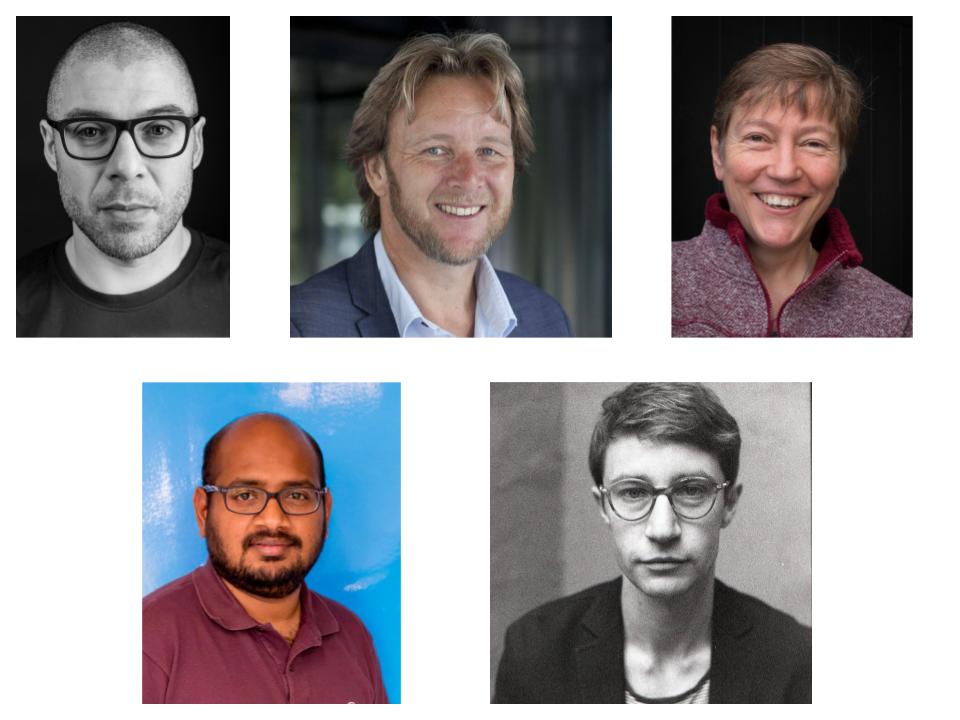Davide Ceolin, Piek Vossen, Ilia Markov, Catholijn Jonker, Pradeep Murukannaiah
Senior Researcher (Ceolin), Full Professor (Vossen, Jonker), Assistant Professor (Markov, Murukannaiah)
Over the past years, foundational models, including large-language models and multi-modal systems, have significantly advanced the possibilities regarding the understanding, analysis, and generation of human language. However, from the extensive and widespread use of the recent models, technical and societal issues have started to emerge. On the one hand, foundational models often are limited in terms of transparency and reliability, thus becoming prone to bias and hallucinations. On the other hand, if used inappropriately, these models might harm the media and democracy, through the propagation and reinforcement of fake news or stereotypes. With this workshop, we intend to map the salient technical and societal issues that emerged around foundational models and to discuss recent developments to address them.
Keywords: Generative AI, (multimodal) large language models, media and democracy, societal impact
Scientific area: Artificial Intelligence, Computational Linguistics, Social Sciences, Law
Bio: Davide Ceolin is a senior researcher in the Human-Centered Data Analytics group at Centrum Wiskunde & Informatica (CWI). His research focuses on the assessment of the quality of online information in a transparent, explainable, and semi-automated manner. He served the Credible Web W3C community group. He is the vice-chair of the IFIP Trust Management Working group and he has been selected as the first joint fellow of the Institute of Advanced Studies and the Data Science Center of the University of Amsterdam. He is the PI of the Eye of the Beholder project, funded by the Netherlands eScience Center, that focuses on transparent assessment of online information quality. He is a member of the AI, Media and Democracy lab. He obtained a Ph.D. in Computer Science from the Vrije Universiteit Amsterdam in 2014.
Piek Vossen is a Professor in Computational Lexicology at the Vrije Universiteit Amsterdam. Machines that understand language are my passion. After 10 years in industry, he became full professor (2009) and established the Computational Linguistics and Text Mining Lab, where 25 researchers study language models. He supervised 20 PhDs and 10 postdocs and developed two master programmes. His groundwork on cross-language conceptual modelling and interoperability led him to found the Global-WordNet-Association (GWA) for building WordNets in languages and connecting these through semantic graphs (2001). GWA addresses fundamental questions at scale: what words we use, what they stand for, and how they relate. He developed Dutch WordNet databases, collaborating with De Rijke. Today, WordNet reminisces in large language models (LLM) that automatically place words in semantic graphs. He built an LLM from Dutch medical notes with AUMC researchers for medical text classification. He coordinated numerous programmes creating news reading machines to reconstruct what happened in the world as event-centric knowledge graphs, with Van Harmelen. In his Spinoza-financed programme, he studied three foundations for language understanding: identity, reference, and perspective, resulting in the GraSP model as the “theory-of-mind” of robots communicating with people within the Hybrid Intelligence gravitation programme.
Prof. dr. Catholijn Jonker is professor in Artificial Intelligence at TU Delft and Leiden University. She is president of ICT Platform of the Netherlands, board member of the Centre for Bold Cities, principal investigator of the Amsterdam Institute of Advanced Metropolitan Solutions (AMS), board member of IFAAMAS, and vice-coordinator of the Hybrid Intelligence Centre. She is a member of the Royal Holland Society of Sciences and Humanities, a Fellow of EurAI, and member of the Academia Europaea. She is a co-founding member of the Netherlands Academy of Engineers. She is a knight in the Order of the Netherlands Lion.
Pradeep K. Murukannaiah is an Assistant Professor in the Intelligent Systems department at TU Delft. Pradeep’s research aims to connect societal dialogue and decision-making via Hybrid Intelligence. He investigates NLP techniques to identify what stakeholders value in a societal discussion and Multi-Objective Decision Making methods to incorporate the stakeholders’ values into decision-making. Pradeep’s works have appeared in several AI (especially, Multiagent Systems and NLP) venues.
Ilia Markov is an Assistant Professor at the Computational Linguistics & Text Mining Lab at the Vrije Universiteit Amsterdam. His research interests include automatic hate speech detection, generation of counter-narratives against hate speech, and authorship analysis-related tasks such as authorship attribution and author profiling.
Visiting period: 23/04/2024 at CWI
